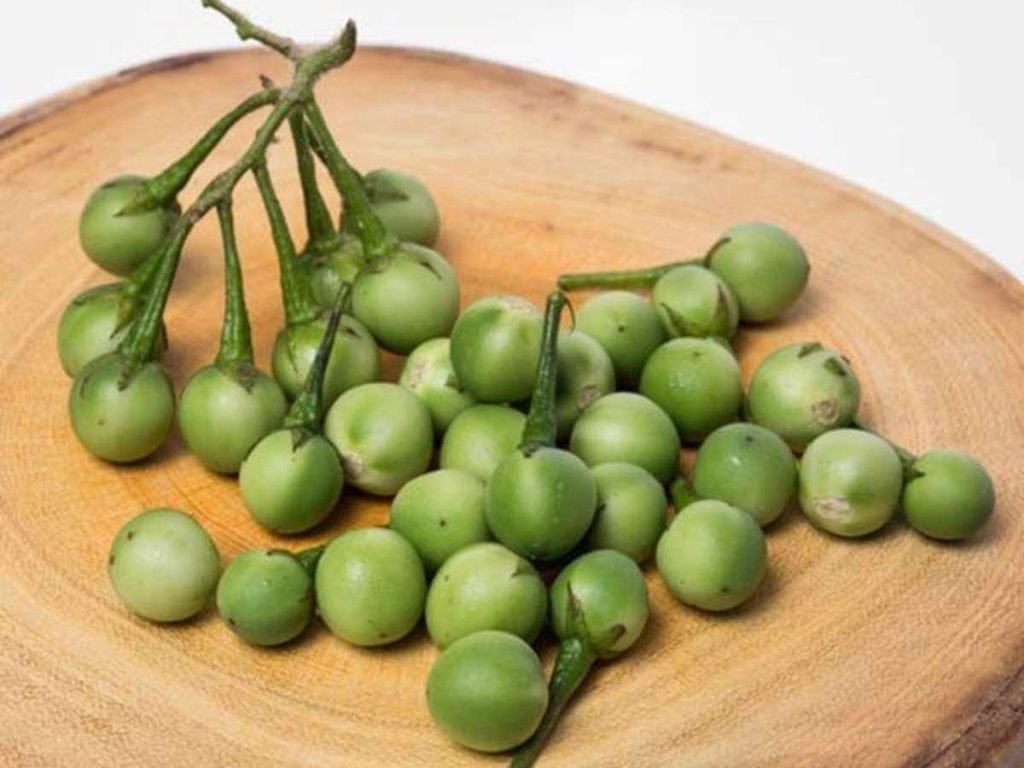
Turkey berry, known scientifically as Solanum torvum, is a small, round fruit that has been used in traditional medicine and culinary practices for centuries. This tiny berry packs a punch with its range of uses and health benefits. However, it also comes with some unwanted effects. In this blog, we’ll explore the various uses, benefits, and potential side effects of turkey berries.
What is Turkey Berry?
Description and Origin
Turkey berry is a tropical fruit native to Central and South America but is now widely grown in Asia and Africa. The plant produces small, green berries that turn yellow or red when ripe. These berries are commonly used in traditional dishes and herbal medicine.
Nutritional Profile
Turkey berries are rich in essential nutrients, including vitamins A and C, iron, calcium, and dietary fibre. They also contain potent antioxidants and anti-inflammatory compounds.
Uses of Turkey Berry
Culinary Uses
Turkey berry is a versatile ingredient used in various cuisines around the world.
- Soups and Stews: In Asian and African cooking, turkey berries are often added to soups and stews to enhance flavour and nutrition.
- Curries: They are commonly used in curries, particularly in Indian and Thai dishes.
- Pickles and Sauces: Turkey berries can be pickled or used to make sauces and chutneys.
Medicinal Uses
Turkey berries have been used in traditional medicine for their potential health benefits.
- Blood Health: The berries are believed to help increase haemoglobin levels and treat anaemia due to their high iron content.
- Diabetes Management: Some studies suggest that turkey berries may help regulate blood sugar levels.
- Digestive Health: They are used to treat digestive issues such as diarrhoea, stomach ulcers, and indigestion.
- Anti-inflammatory and Antioxidant Properties: Turkey berries are rich in antioxidants and anti-inflammatory compounds, which may help reduce inflammation and oxidative stress in the body.
Health Benefits of Turkey Berry
1. Boosts Immune System
The high vitamin C content in turkey berries helps strengthen the immune system, protecting the body against infections and illnesses.
2. Improves Iron Levels
Turkey berries are an excellent source of iron, making them beneficial for individuals with iron deficiency anaemia. Regular consumption can help improve haemoglobin levels and increase energy.
3. Regulates Blood Sugar
Studies have shown that turkey berries may have anti-diabetic properties, helping to regulate blood sugar levels and improve insulin sensitivity.
4. Supports Digestive Health
The dietary fibre in turkey berries aids digestion and helps prevent constipation. They are also used to treat stomach ulcers and other digestive disorders.
5. Reduces Inflammation
Turkey berries contain compounds with anti-inflammatory properties, which can help reduce inflammation in conditions like arthritis and other inflammatory diseases.
Unwanted Effects of Turkey Berry
1. Potential Toxicity
While turkey berries are generally safe for consumption, they contain solanine, a toxic alkaloid that can be harmful in large amounts. It is essential to consume them in moderation and ensure they are cooked thoroughly to reduce toxicity.
2. Allergic Reactions
Some individuals may experience allergic reactions to turkey berries, including itching, swelling, and difficulty breathing. It is advisable to discontinue use and seek medical attention if any allergic symptoms occur.
3. Gastrointestinal Issues
Excessive consumption of turkey berries can lead to gastrointestinal discomfort, including nausea, vomiting, and diarrhoea. Moderation is key to avoiding these unwanted effects.
4. Interaction with Medications
Turkey berries may interact with certain medications, particularly those used to treat diabetes and blood pressure. It is advisable to consult a healthcare professional before adding turkey berries to your diet if you are on medication.
Conclusion
Turkey berry is a versatile fruit with numerous culinary and medicinal uses. Its health benefits, including boosting the immune system, improving iron levels, regulating blood sugar, and supporting digestive health, make it a valuable addition to your diet. However, it is essential to consume turkey berries in moderation to avoid potential toxicity and other unwanted effects. As with any natural remedy, consulting a healthcare professional before use is always a good practice, especially if you have underlying health conditions or are on medication.
